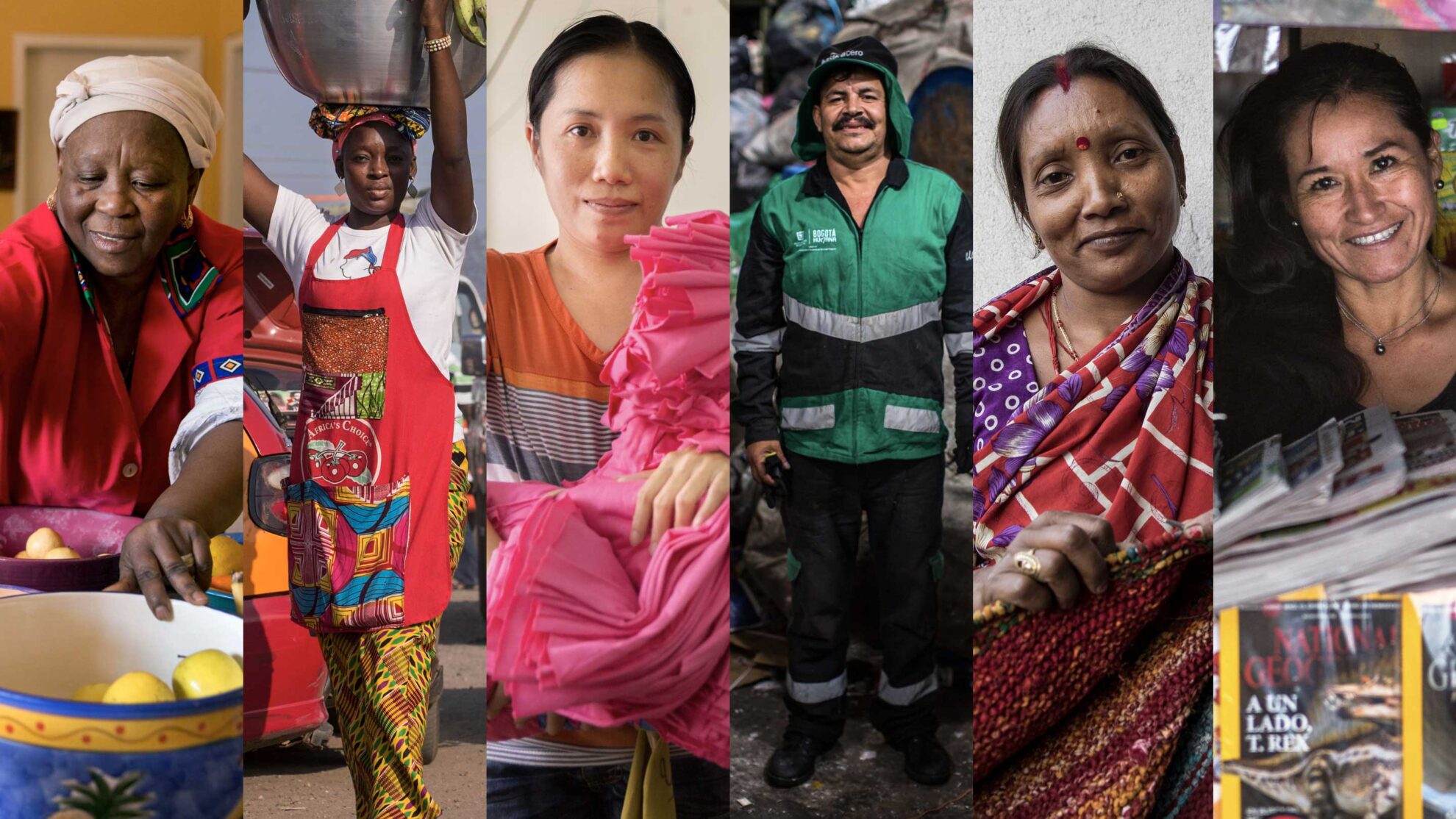April 2, 2020
As the global COVID-19 pandemic unfolds, WIEGO is focused on the devastating consequences for informal workers, who lack labour, social and health protections. This is both a health and an economic crisis — and both aspects are hitting informal workers particularly hard.
“Structural deficits in the global economy have long kept informal workers poor—no matter how hard they worked. They have limited resources to help them cope under crisis conditions,” says Sally Roever, WIEGO’s International Coordinator. “Now, we see those who work in public spaces being told to stay home, so they are facing the real threat of extreme poverty and malnutrition. But so are those who work in private spaces.”
She explains that WIEGO is learning from its partners on the ground that home-based workers are without orders as many supply chains have stopped producing — leaving them with no income whatsoever. Also, some domestic workers are being told to stay away from their employers' homes, losing pay, while others are being told to work 7 days a week without extra pay to keep those homes clean.
Roever goes on to note that informal workers — who comprise 61% of the world’s workforce, and 90% in developing countries — are being excluded from government emergency relief funds that target the formally employed (now unemployed) and the very poor.
WIEGO is working with its network of informal workers’ organizations to help them advocate for the support they need in this crisis.
“Informal waste pickers, street food vendors and domestic workers provide essential services to communities and households,” Roever says. “They are at high risk of infection at work, but they need to work to be paid. They must be provided with personal protective equipment and compensation should they get sick.”
To help waste pickers stay safe on the job, WIEGO’s team has worked with health experts to develop guidelines to minimize their risk. But households and municipal governments must step in to protect them. This includes stressing the separation of contaminated materials from recyclables.
As Roever notes: “In this uncertain moment, there is one thing we know: the best way to find practical and appropriate ways to protect the world’s two billion informal workers is for national and local decision-makers to work with the organizations, associations and cooperatives of informal workers. These grassroots groups know best what is needed.”
WIEGO is in close communications with informal worker organizations and networks to determine what is needed and to assist in their advocacy work. We are also doing a rapid assessment of the situation on the ground to get an understanding of how COVID-19 and public health regulations are impacting the lives and livelihoods of informal workers. Details of this study will be made available to media in April.
Go to our COVID-19 Crisis web resources to find more information, statements and action plans from organizations around the world.
Interviews
Find experts from regions around the globe who can speak to this ongoing crisis at our Press Room.
Contact media@wiego.org
